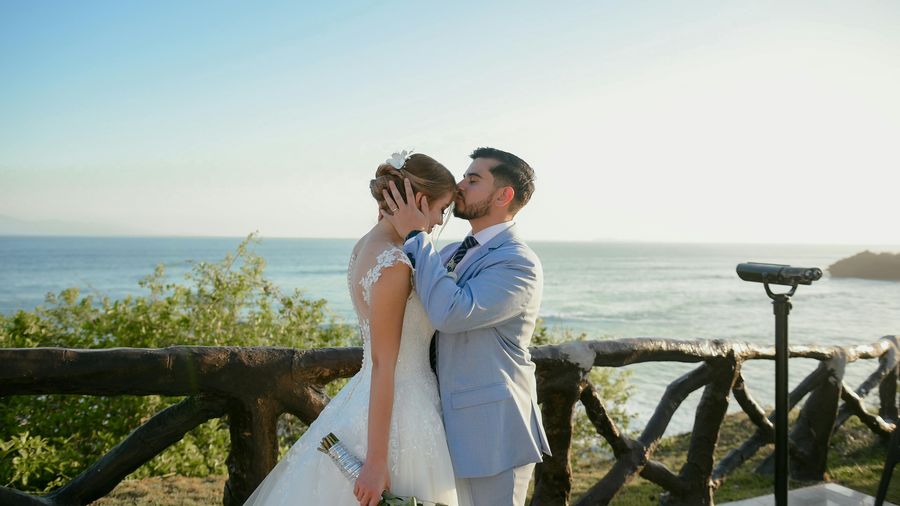The History and Evolution of Marriage Licenses
Hello there! Have you ever wondered how marriage licenses came into existence? Well, let’s take a journey through time and explore the fascinating history and evolution of marriage licenses.
The History of Marriage Licenses in England
Believe it or not, the concept of marriage licenses dates back to the 1100s in England. During this time, weddings were typically overseen by the church, but the state realized that they could generate revenue by requiring couples to obtain a license.
The first marriage licenses were issued by the church, and they required the couple to post a formal writ or banns beforehand.
Marriage Licenses in Colonial America
In Colonial America, the concept of marriage licenses continued to evolve. The state began to issue marriage licenses in order to control the number of marriages and guarantee that they were performed according to secular laws.
In addition, the government used the information gathered from marriage licenses to create a census and generate revenue.
The Publication of Banns
While marriage licenses became the norm in many countries, they were not always the only option available. In some areas, getting married simply required posting a formal writ or banns.
Marriage licenses were often expensive, so posting banns was a cheaper alternative. Banns were public announcements made by the couple in order to let the community know of their intention to marry.
Racism and Marriage Licenses in the American South
Sadly, during the time of segregation in the American South, marriage licenses were often used as a tool of discrimination. In 1927, North Carolina passed the Racial Integrity Act, which prohibited interracial marriages.
The state used marriage licenses as a way to prevent people of different races from getting married.
State Control of Marriage Licenses
As time went on, more and more states began to take control of marriage licenses. This allowed them to gather vital statistics information and create a revenue stream.
Additionally, the government began to recognize common-law marriages, which were not necessarily recognized by the church.
Same-Sex Marriage Licenses
In recent years, same-sex couples have fought for the right to obtain marriage licenses. Many argued that denying them this right was a violation of their civil rights.
Finally, in 2015, the Supreme Court ruled that same-gender partners had the right to marry and that marriage licenses could not be denied to them.
Rebellion Against Marriage Licenses
While marriage licenses have become ubiquitous, some people reject the idea altogether. Cohabitation is becoming increasingly popular, with more and more couples choosing to live together without getting married.
Additionally, some fundamentalist Christians reject the idea of marriage licenses, arguing that marriage is a sacred union that should only be recognized by God.
Conclusion
In conclusion, marriage licenses may seem like a mundane and necessary part of getting married, but they have a rich history and have evolved over time. From their beginnings as a church requirement in England to their current status as a vital part of the legal system, marriage licenses have played a significant role in the lives of countless couples.
The Purpose and Function of Marriage Licenses
Marriage licenses are ceremonial documents widely used across the globe to legally bind couples into a marriage relationship. Marriage licenses play a crucial role in society, providing both legitimacy and legal safeguards to couples.
From legitimizing relationships to sharing assets, let’s dive into the purpose and function of marriage licenses.
Legitimizing Relationships
In some societies, the use of marriage licenses is to give legitimacy to a relationship. It can be argued that a relationship isn’t truly official until a couple has a marriage license.
Marriage licenses add a level of security to the union, ensuring that the couple is legally recognized as a married couple. This recognition can come in handy during legal issues such as child custody rights and inheritance rights.
The legal protection afforded by marriage licenses showcases the importance of the documents in society. Without marriage licenses, couples are likely to face legal issues with no recourse.
Without marriage licenses, disputes regarding child custody, inheritance rights, and other legal issues are likely to be much more complicated and involved.
Sharing of Assets
Another essential function of marriage licenses is the sharing of assets. During a marriage, couples typically earn income, invest in property, and share life experiences.
Marriage licenses ensure that assets such as property and income are shared equitably in case of separation. With sufficient documentation, it is easier for courts to determine how marital assets should be divided.
Suppose a couple decides to proceed without a marriage license. If they were to separate later on, dividing assets could become complicated without the legal documentation provided by a marriage license.
In non-marital relationships, partners may have to go through court battles over who owns what assets, which can be a hassle.
Controversies Surrounding Marriage Licenses
While marriage licenses have served an essential function throughout history, controversies surrounding their use have also come to light. Some of these controversies include:
Historical Racism and Prejudice
Marriage licenses have often been the tool of racist regimes in the past. For instance, in North Carolina, the Racial Integrity Act was enacted in 1927.
The law aimed to prevent interracial marriages by requiring couples to get a marriage license. To obtain the license, couples had to prove that they were not of mixed-race heritage.
The government used marriage licenses as a tool to control the mixing of races, preventing interracial relationships legally.
Government Control of Marriages
Another issue is the government’s control of marriages. For instance, in some cases, couples may feel that the involvement of the state in their relationship is unwanted.
Some couples may think that their relationship is only between the two of them and their God. Additionally, some religious groups, such as fundamentalist Christians, may reject the idea of marriage licenses, arguing that marriage is a sacred union that should only be recognized by God.
Religious and Cultural Critiques
Religious and cultural critiques are common with marriage licenses worldwide. In some countries, religious leaders hold the authority over marriage, and the church’s involvement in marriages.
The church has often regulated who should and should not get married. People outside of majority religions may feel disenfranchised by this regulation, leading to criticism from minority groups.
Cultural critiques are also common, with some cultures having unique rituals surrounding marriage. In conclusion, marriage licenses play a crucial role in modern societies.
They serve to legitimize relationships and provide a legal safeguard in case of a legal issue. Marriage licenses also ensure that couples equitably share assets in the case of a separation.
However, controversies surrounding the use of marriage licenses highlight the need for careful consideration when enacting their use. Historical cases of racism and prejudice, government control of marriages, and religious and cultural critiques all show that the use of marriage licenses is not always straightforward as it seems.
In conclusion, the history, purpose, function, and controversies surrounding marriage licenses are all important topics to consider when discussing the role of these documents in society. From their introduction in England as a way to generate revenue to their modern use as a way to provide legal recognition of marriages, marriage licenses have served an important function throughout history.
However, their use has been marred by issues such as historical racism, government control, and cultural and religious critiques. Despite these controversies, marriage licenses remain a crucial component of modern relationships, providing couples with legal protection and ensuring that assets are shared equitably.
By understanding these important aspects of marriage licenses, we can better appreciate their significance in our lives.



